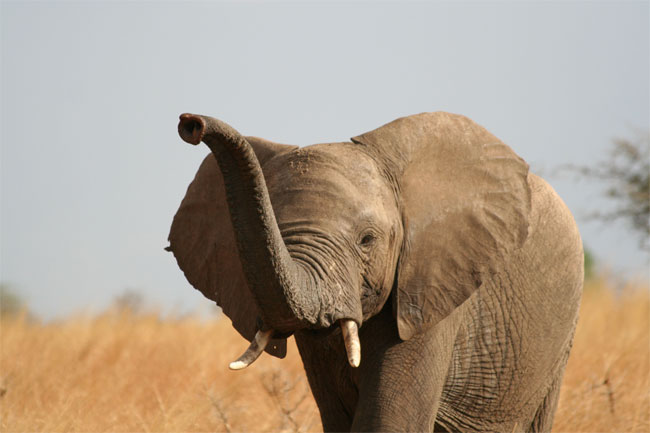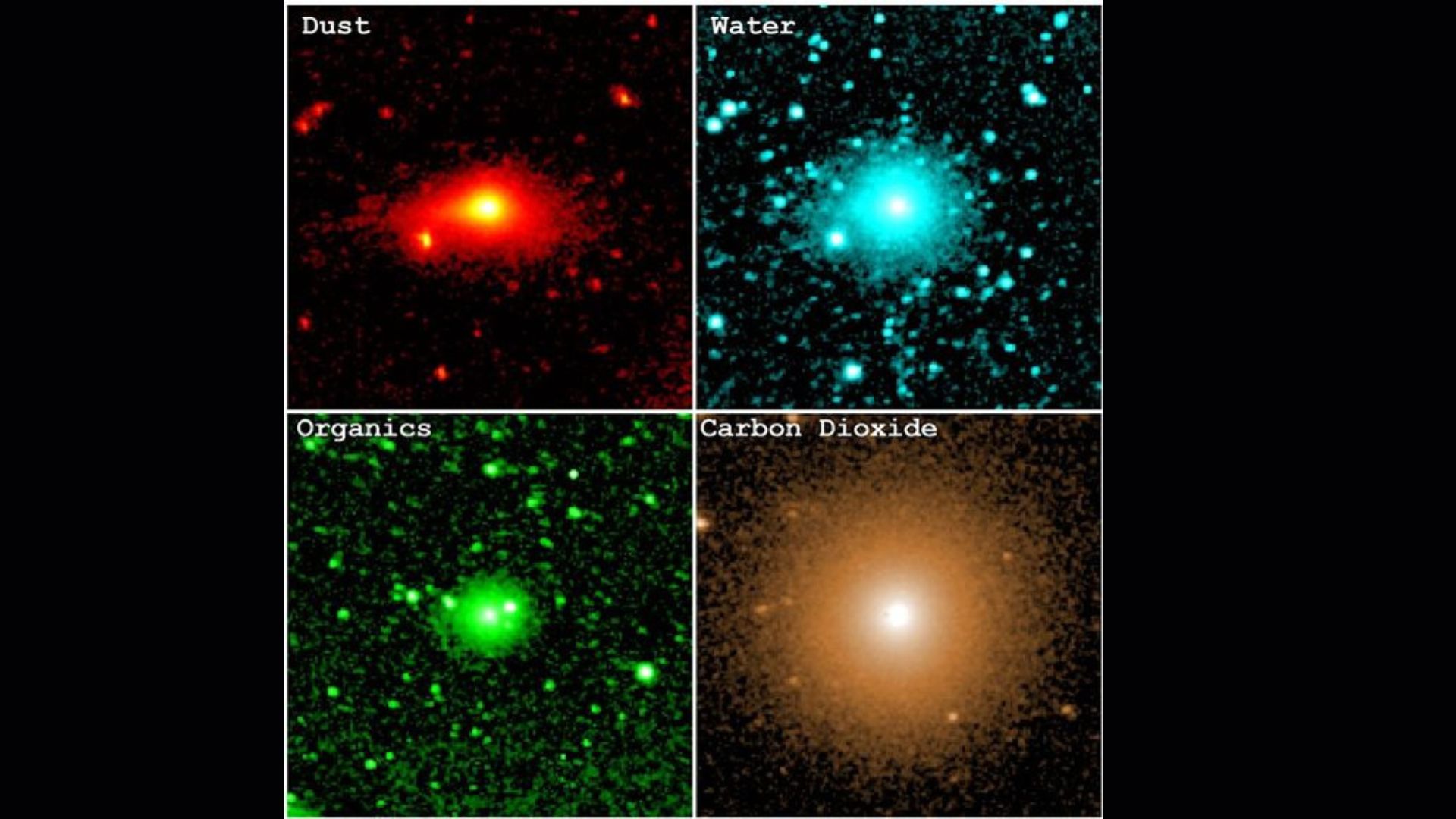Dragons & Elephants May Solve Australia's Environmental Problems, Scientist Says

Get the world’s most fascinating discoveries delivered straight to your inbox.
You are now subscribed
Your newsletter sign-up was successful
Want to add more newsletters?

Delivered Daily
Daily Newsletter
Sign up for the latest discoveries, groundbreaking research and fascinating breakthroughs that impact you and the wider world direct to your inbox.

Once a week
Life's Little Mysteries
Feed your curiosity with an exclusive mystery every week, solved with science and delivered direct to your inbox before it's seen anywhere else.

Once a week
How It Works
Sign up to our free science & technology newsletter for your weekly fix of fascinating articles, quick quizzes, amazing images, and more

Delivered daily
Space.com Newsletter
Breaking space news, the latest updates on rocket launches, skywatching events and more!

Once a month
Watch This Space
Sign up to our monthly entertainment newsletter to keep up with all our coverage of the latest sci-fi and space movies, tv shows, games and books.

Once a week
Night Sky This Week
Discover this week's must-see night sky events, moon phases, and stunning astrophotos. Sign up for our skywatching newsletter and explore the universe with us!
Join the club
Get full access to premium articles, exclusive features and a growing list of member rewards.
Between out-of-control fires and destructive invasive species, Australia is facing major environmental problems. Now, an Australian scientist says he has a radical solution to these issues: Import large animals, such as elephants, to consume flammable grasses and combat the feral animals that are reconstructing the ecosystem.
"A lot of people are saying that we need to look to geoengineering to solve our problems," said David Bowman, a professor of environmental change biology at the University of Tasmania, Australia. "What I am saying is that we need a new nature — we need to try ecosystem engineering."
On Feb. 7, 2009, an unusually massive firestorm ravaged around 990,000 acres (400,000 hectares) in southern Australia. The incident, known as Black Saturday, was indeed a unique case, but fires are a constant problem for the continent because of flammable grasses, most notably the African gamba grass, which is considered an alien species.
In addition to the exotic grasses, numerous non-native animal species — pigs, goats, cattle, horses, donkeys, camels, buffalo and deer — are competing against native species for resources, destroying habitats and spreading diseases to domestic animals, Bowman said.
Current methods to tackle these problems just aren’t working, Bowman told LiveScience. For example, management officials have tried tracking radio-collared buffalo from helicopters to find and kill other herd members. But, Bowman says, for every buffalo that’s killed, another is born to take its place.
So he decided to think outside the box.
"What I was trying to do is crystallize all of the issues in a single piece," Bowman said of his ideas, published as a commentary in the Feb. 2 issue of the journal Nature. "How far are humans going to go in managing landscapes? What is acceptable and what is not?"
Get the world’s most fascinating discoveries delivered straight to your inbox.
A radical solution
Australia could start to reintroduce top predators into the ecosystem, Bowman said. Farmers and management agencies currently poison the Australian wolf (dingo), one of the continent's key predators, to protect livestock.
"But when you reduce a dingo population, it changes their predatory behavior," Bowman said. "When they are allowed to build up packs, they control cats and foxes." By poisoning the dingoes, they're decreasing their numbers and pack size, making the predators less-efficient hunters; without controls on the fox and cat populations, these feral animals are currently killing native birds, mammals, reptiles and insects in large numbers.
More dingoes could also help control other feral animals, such as pigs, he said.
In addition to dingoes, Bowman suggests introducing other large predators to the land, such as the Komodo dragon, to take the place of the giant lizards that once roamed Australia. Tim Flannery, a biologist at Macquarie University in Australia, originally came up with this idea, Bowman explained.
"But it's very controversial," he said. "I think it's actually better to use human hunters than introducing top predators."
Recent government programs have started to allow Australia’s indigenous people to return to their tribal lands, from which they were evicted by British colonizers starting in the late 1700s, Bowman said. The programs provide social and health benefits to the Aboriginal hunters, and employing more of the hunters could help control feral animals and reinstate patch burning, which prevents large fires from springing up, he said.
To further reduce fires, Bowman suggests enlisting the help of large African herbivores, such as elephants and rhinoceroses. Australia's current herbivores — both native and alien — are unable to graze on the tall gamba grass, but this is likely not true for elephants and rhinoceroses, which deal with the grass in their homeland. [Elephant Gallery: Biggest Beasts on Land]
Officials would need to introduce these animals in small areas and use various techniques, including contraceptives and tracking technologies, to manage and monitor their habits, Bowman said.
"The elephant idea is a bit crazy," he conceded. "But when you have a grass that is so disruptive, it's certainly reasonable to think of serious management options."
Risks abound
Not everyone is sold on Bowman's radical plan to introduce the giant herbivores and predators. "It seems like a terrific idea and one that will get a lot of people excited," said Mark Hoddle, a biologist at the University of California, Riverside. "But once they start thinking about it, they‘ll see that it’s a flawed idea."
There are a lot of things to consider when introducing a new species to an area, said Hoddle, who specializes in controlling pests with other non-native species. For example, elephants and rhinos won’t be restricted to eating just the flammable grasses; they’ll likely munch on native species, too. Additionally, they could have a negative impact on the local soil, or be reservoirs for diseases that don't currently have a foothold in Australia. "They'll most likely cause more harm than the intended benefits," Hoddle told LiveScience. [Devastating Infectious Diseases]
Hoddle is also concerned with the large amount of dung the animals will produce. "Australia already has huge problems with flies from droppings of non-native mammals," he said.
Steven Hess, a research biologist with the U.S. Geological Survey in Hawaii, says that introducing Komodo dragons wouldn't be a good idea either. "Once you start adding more and more animals to the system, you are basically committed to ecosystem change," Hess told LiveScience. "You are ruling out the option of ever going back."
And, if you do want to replace one extinct species with one that's currently living, they have to be ecological equivalents, he said. “You would have to study that carefully to find out what these extinct species were doing before you release another species into the mix,” he said. “I think that’s why this re-wilding idea hasn’t caught on like wildfire.”
For his part, Bowman wouldn't be entirely disappointed if the scientific community shoots down his ideas, but he does hope that others will come up with better ideas to manage Australia's pressing problems.
"I'm not really an advocate for any of these ideas," he said. "I'm an advocate for the land."

 Live Science Plus
Live Science Plus










